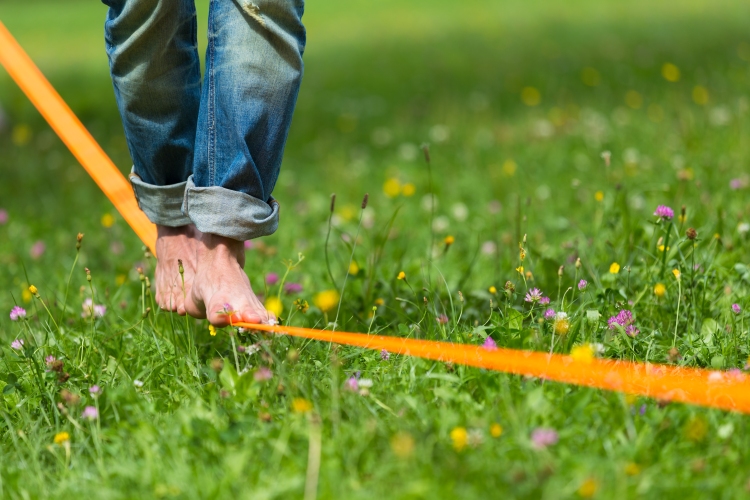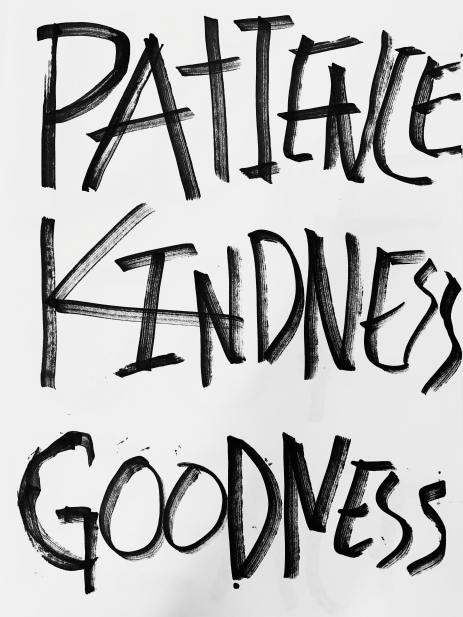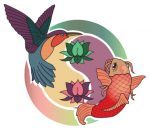This week is Mental Health Awareness Week, and the theme is kindness. While a lot of the focus will probably be aimed at being kind to other people, I would like to focus on Self-kindness and the positive effects it can have on our physical and mental wellbeing.
In my last blog, Why Now May be a Good Time to Start Meditating, I highlighted how dangerous negative thoughts and emotions, such as anxiety, can be for our health.
The further we traverse into the uncharted territories that this pandemic is presenting to the world then the more important actions such as kindness are. As people become more afraid and stress increases, words such as kindness, love and care seem to get forgotten, replaced by anger, frustration and an urge to find someone to blame.
Numerous studies have shown that emotions such as anger and hatred can be a significant cause of premature death. Dr Redford Williams at Duke University, and Dr Robert Sapolsky at Stanford University have conducted studies that showed how anger, rage and hostility are particularly damaging to the cardiovascular system.
Further evidence shows that these emotions can now be considered a major factor in heart disease, at least equal to, if not greater than the traditionally recognised risk factors such as high cholesterol or high blood pressure.
“The destructive effects of hatred are very visible, very obvious and immediate. For example, when a very strong or forceful thought of hatred arises within you, at that very instant, it totally overwhelms you and destroys your peace of mind; your presence of mind disappears completely. When such intense anger and hatred arises, it obliterates the best part of your brain, which is the ability to judge between right and wrong, and the long-term and short-term consequences of your actions……
……. So, this anger and hatred tends to throw you into a state of confusion, which just serves to make your problems and difficulties so much worse.”
– The Dalai Lama (The Art of Happiness)
We all have the ability to be kind, some of us just practice it more than others. To truly be kind takes mindfulness, because we have to notice and acknowledge where kindness is needed, both in ourselves and in others. Sometimes we even have to try and put ourselves in another’s shoes and understand the pressures and struggles they may be under.

When people get angry at you for no apparent reason, or at a level that is unwarranted, it is generally not because of something you have done, it is to do with what is going on in their lives at the time, and they are simply taking their frustrations out on you. There is no excuse for this behaviour, however it goes a long way to understanding how negative and positive emotions can be easily transferred, and how they can affect those around you.
My frustrations with anxiety and depression mean I struggle to deal with my emotions, and I can get angry and irritable very quickly, most of it aimed at Kim and Leo. After a blow-up I find I then get angry at myself because I hate behaving in this way, and that in turn has a knock-on effect on my own mood and my depression gets worse.
So, if our emotions are transferable, and can have such a big effect on others, surely it means that kindness starts with Self-compassion?

Many of us focus on our weaknesses, and often brush off our positive traits as if they are nothing. Acknowledging our strengths can make us feel uncomfortable, and we get embarrassed when confronted with them, fearing that to talk about them is wrong and an exercise in inflating our ego.
What if we actually take the time to be kind to ourselves and give our strengths as much focus and attention as we do our weaknesses? We don’t have to go around shouting about them, we don’t even have to tell anyone else, what’s important is that we tell ourselves how good we are.
Because self appreciation can make us feel uncomfortable, we spend a lot of time suppressing positive thoughts about ourselves, and put a screen up so we can’t see them. Others can see them, and despite being told about them, we can continue to ignore these feel-good emotions, possibly because we simply don’t know what to do with them.

The more reading I do about how the brain works, the more I realise that while it is an amazing ‘super computer’ it can also be the cause of a lot of problems. As we have seen time and again, the prehistoric programming hard wired into our brain is really outdated and therefore not helpful to us in the modern world.
One of the most powerful habits of the mind is to focus on the negative, and this becomes more apparent when we think about ourselves.
Our instincts tell us to identify problems and fix them so that we can survive, which means that we often take positive qualities for granted, and focus on the weaknesses. Maybe this is why we are constantly drawn to the news and other media; we know the negative stories and images are bad for us but still we go back for more, and more.

It’s not about eradicating negative thoughts, or even burying our heads in the sand and ignoring what is going on in the world; it’s about that simple word, ‘BALANCE’.
We all have positive and negative traits and we need to accept this fact; exaggerating too far to the positive or the negative is not good for us, we need to accept ourselves as we are, no better and no worse. Once we acknowledge this in ourselves, then we can start to accept it in others.
“The key is having balance and perspective so that we can see ourselves without distortion.” – Kristin Neff
Kindness breeds positivity, and this is really important in life. Again, it’s not about being positive about everything because that is exhausting (the same as being negative about everything) and can be quite annoying.

I read a brilliant book called Positivity, Groundbreaking Research to Release Your Inner Optimist and Thrive by Barbara Fredrickson, which provides scientific evidence supporting the power of positivity.

She says that Kindness and positivity feed off each other, and there are at least two sides to kindness, including the kindness we give, and that which we receive from others. Simply recognising kindness increases your positivity and this in turn, benefits your health.
In her studies, when she has asked people to become more aware of their kindness towards others, by keeping a daily tally of each and every act of kindness, their positivity rose considerably. She found that the people who flourish are more attuned to kindness, more focused on others, and more alert to how they might make a positive difference.
Like most things to do with emotions and the brain, it takes time to change old habits, so I would recommend keeping it simple to begin with.
Exercise: Write a list of at least 10 positive attributes about yourself (if you really struggle with this, ask someone who knows you well to help). Stick the list where you can see it easily, or keep it with you in your wallet or handbag.
When you start feeling bad about yourself, or you feel negative thoughts creeping in, get your list and read through it a few times until the negative emotions subside. This is simply an act of kindness to yourself.
Why not make duplicate copies of the list, and place them around the house so you see them all the time?
By seeing and reading the list a lot, you start to replace the old, negative thoughts with the new, positive ones, and that starts the process of re-wiring the brain.
I think the main thing is to try and become more mindful of your emotions, acknowledge them and try to look at what is really causing them. Positive emotions such as joy, pride, serenity, gratitude, inspiration, and most importantly, love are so good for us; so we need to be aware of what generates these emotions for us, so that we can expose ourselves to more of these feel-good experiences.
Likewise, noticing negative emotions such as anger, hatred, jealousy, disgust, fear, rage, sadness and annoyance, and what causes them, means you can make changes to reduce your exposure to them. You can start avoiding, or reducing your exposure to these experiences, if and when you can.
I think the most important thing is to stop and think before you act, especially when you feel angry; I know it’s easier said than done especially when emotions are running high, but it’s worth trying to do, because it’s important to remember that we are all fighting our own unique battle, and we are all doing the best we can.

Thank you, thank you, thank you.


thanks 🙂 & we encounter far fewer people while in lockdown too so it doubly makes sense to start with ourselves, & then our families.
LikeLiked by 1 person